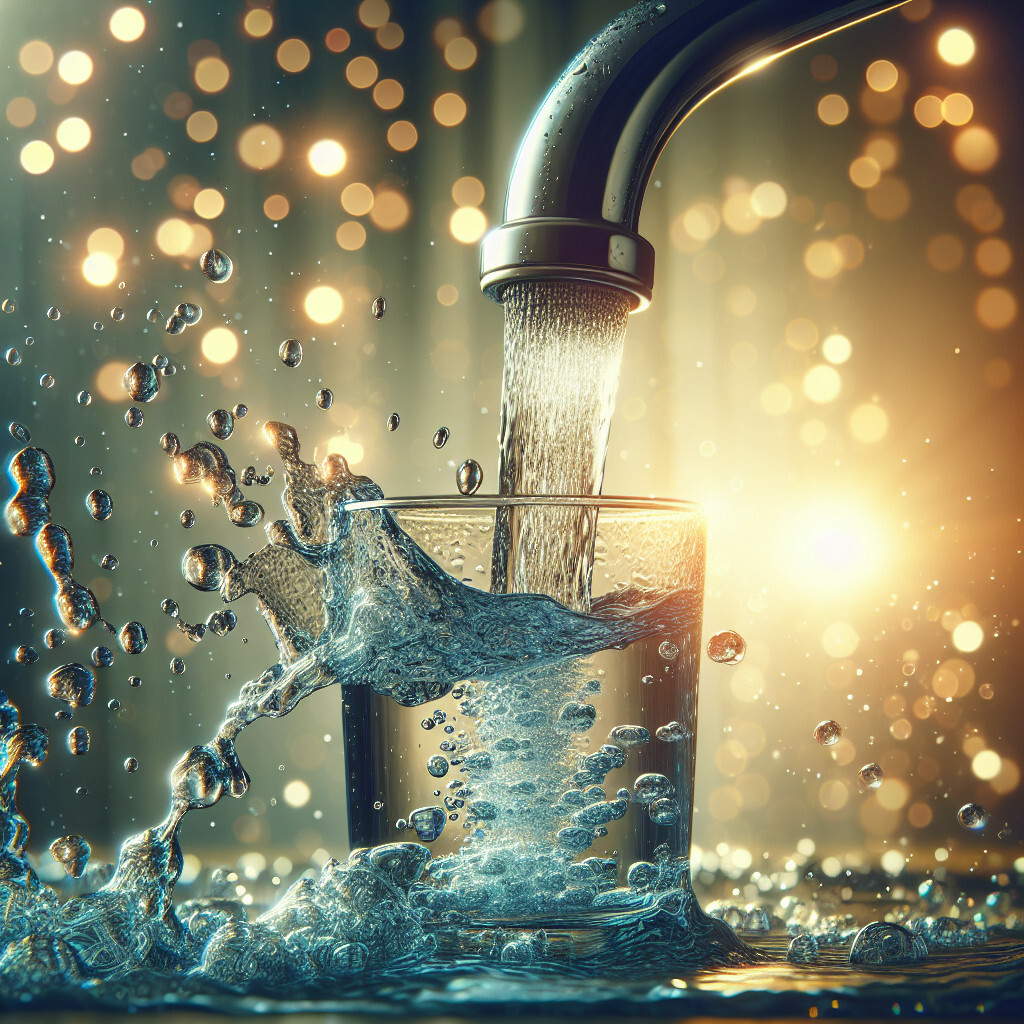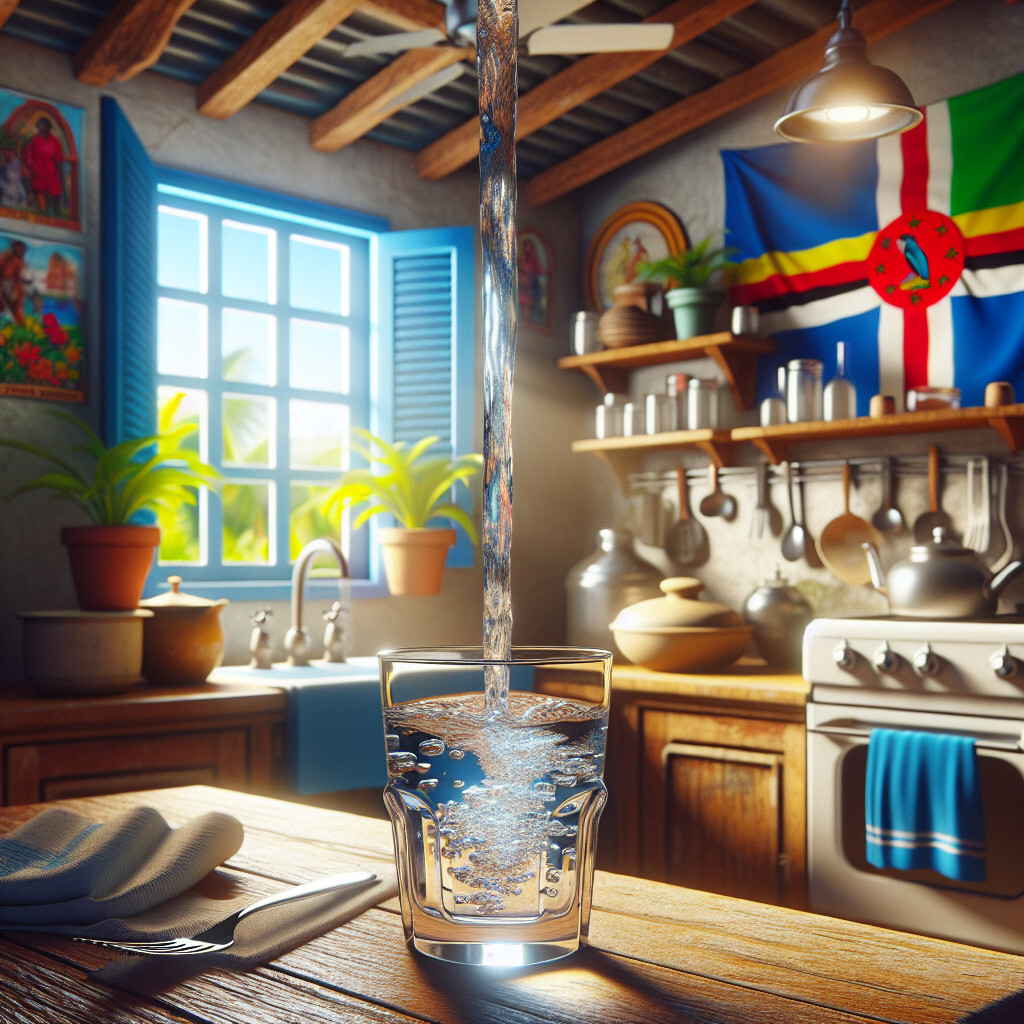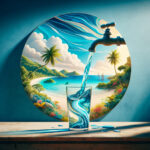-
Table of Contents
“Dominica’s Tap Water: Naturally Pure, Refreshingly Clean!”
Introduction

The tap water in Dominica is generally safe to drink and meets World Health Organization standards. The island’s water supply is sourced from natural springs and rivers, and is treated and tested regularly to ensure its safety and quality. However, it’s recommended for travelers to use bottled water or boil tap water as a precautionary measure, due to occasional waterborne diseases.
Understanding the Quality of Tap Water in Dominica
Dominica, often referred to as the “Nature Island of the Caribbean,” is renowned for its lush greenery, stunning waterfalls, and pristine rivers. However, one question that often arises among visitors and potential residents is about the quality of the tap water in Dominica. This article aims to provide an informative and formal discussion on this topic.
Dominica’s tap water is generally safe to drink, thanks to the country’s abundant natural water resources and the government’s commitment to maintaining high water quality standards. The island’s water supply primarily comes from surface water sources such as rivers, streams, and lakes, which are naturally filtered through the island’s volcanic soil. This natural filtration process contributes significantly to the overall quality of the tap water, making it not only safe but also fresh-tasting.
The Dominica Water and Sewerage Company Limited (DOWASCO), the primary water utility company in the country, is responsible for the treatment and distribution of water. DOWASCO adheres to strict water quality standards set by the World Health Organization (WHO). The company conducts regular testing and monitoring of the water supply to ensure it is free from harmful bacteria and contaminants. The water treatment process includes filtration, disinfection, and sometimes, depending on the source, sedimentation and coagulation.
However, it’s important to note that while the tap water in Dominica is generally safe to drink, there can be occasional issues, particularly in the aftermath of natural disasters such as hurricanes. These events can disrupt the water supply and potentially introduce contaminants. In such cases, DOWASCO typically issues boil water advisories until the water quality can be assured.
Furthermore, in some remote areas of the country, the water supply may not be as consistently reliable or as thoroughly treated as in urban areas. Therefore, it is advisable for visitors or residents in these areas to use bottled water or to boil or treat tap water before consumption.
Despite these occasional challenges, the government of Dominica continues to invest in improving the country’s water infrastructure. Projects aimed at increasing the resilience of the water supply system, particularly in the face of climate change and natural disasters, are a key focus. These initiatives not only aim to ensure the continued safety of the tap water but also to improve its accessibility across the island.
In conclusion, the tap water in Dominica is generally safe to drink, thanks to the country’s natural water resources and the rigorous water quality standards maintained by DOWASCO. However, it’s always wise to stay informed about the current water conditions, particularly in the wake of natural disasters or when staying in remote areas. As the government continues to invest in water infrastructure and resilience projects, the future of Dominica’s tap water looks promising. Whether you’re a visitor or a resident, you can generally trust in the quality of the tap water in Dominica, while also appreciating the natural beauty that contributes to it.
The Impact of Natural Disasters on Dominica’s Tap Water Supply
Dominica, often referred to as the “Nature Island of the Caribbean,” is renowned for its lush landscapes, vibrant biodiversity, and pristine water sources. However, the island’s tap water supply has been significantly impacted by natural disasters, particularly hurricanes, which have become increasingly frequent and severe due to climate change.
Dominica’s tap water is primarily sourced from rivers and springs, which are abundant on the island due to its high rainfall and mountainous terrain. The water is treated and tested regularly to ensure it meets the World Health Organization’s standards for potability. However, the island’s susceptibility to natural disasters, particularly hurricanes, poses a significant challenge to maintaining a consistent and safe water supply.
Hurricanes, with their high winds and heavy rainfall, can cause extensive damage to water infrastructure. They can rupture pipelines, disrupt treatment facilities, and contaminate water sources with debris, sediment, and pollutants. For instance, Hurricane Maria, which struck Dominica in 2017, left the island without access to clean tap water for weeks. The hurricane’s powerful winds and torrential rains damaged 75% of the island’s water system, leaving many residents reliant on bottled water and aid from international organizations.
Moreover, hurricanes can also lead to landslides, which can further contaminate water sources and damage infrastructure. Landslides can introduce large amounts of sediment and debris into rivers and springs, making the water unsafe to drink without treatment. They can also block roads, making it difficult for repair crews to reach and fix damaged water infrastructure.
In addition to hurricanes, Dominica is also vulnerable to other natural disasters such as earthquakes and volcanic eruptions, which can similarly disrupt the island’s water supply. Earthquakes can cause ground movement that can damage pipelines and treatment facilities, while volcanic eruptions can contaminate water sources with ash and other volcanic materials.
The impact of these natural disasters on Dominica’s tap water supply is further exacerbated by the island’s limited resources and infrastructure. As a small island developing state, Dominica lacks the resources and capacity to quickly repair and rebuild damaged water infrastructure. This often results in prolonged water outages and increased reliance on bottled water, which can be expensive and environmentally unsustainable.
In response to these challenges, the government of Dominica has been working to improve the resilience of the island’s water infrastructure. This includes upgrading pipelines and treatment facilities to withstand natural disasters, as well as implementing watershed management practices to protect water sources from contamination. International organizations, such as the World Bank and the United Nations, have also provided funding and technical assistance to support these efforts.
Despite these challenges, Dominica’s tap water remains generally safe to drink, thanks to the island’s abundant water sources and ongoing efforts to improve water infrastructure and management. However, the increasing frequency and severity of natural disasters due to climate change underscores the need for continued investment in resilience and adaptation measures.
In conclusion, while Dominica’s tap water supply is generally reliable and safe, it is significantly impacted by the island’s vulnerability to natural disasters. These events pose a significant challenge to maintaining a consistent and safe water supply, highlighting the importance of investing in resilient infrastructure and effective water management practices.
Health Implications of Drinking Tap Water in Dominica
Dominica, often referred to as the “Nature Island of the Caribbean,” is renowned for its lush landscapes, vibrant culture, and pristine natural resources. Among these resources, water holds a significant place, as it is not only a basic necessity for life but also a key factor in the health and well-being of the island’s inhabitants. However, the quality of tap water in Dominica has been a subject of discussion and concern, particularly in relation to its potential health implications.
The tap water in Dominica is generally considered safe to drink, as it is sourced from the island’s abundant rivers and streams, which are fed by rainfall and natural springs. The water undergoes treatment processes to remove impurities and harmful microorganisms before it is distributed to households. The Dominica Water and Sewerage Company Limited (DOWASCO), the primary water utility company on the island, adheres to international standards for water quality and regularly conducts tests to ensure the safety of the water supply.
However, despite these measures, there are instances where the quality of tap water may be compromised. Natural disasters such as hurricanes and tropical storms can disrupt water treatment facilities and contaminate water sources with debris, chemicals, and harmful bacteria. In such cases, the tap water may not be safe to drink without further treatment, such as boiling or using water purification tablets.
Moreover, in some rural areas of Dominica, households may rely on untreated spring water or rainwater for their water supply. While these sources are typically clean and safe, they can be susceptible to contamination from environmental pollutants and pathogens, particularly during the rainy season. Therefore, it is advisable for residents in these areas to treat their water before consumption to reduce the risk of waterborne diseases.
The health implications of drinking contaminated tap water can range from mild gastrointestinal discomfort to severe illnesses such as cholera, typhoid, and dysentery. Long-term exposure to certain contaminants in water can also lead to chronic health conditions, including kidney damage and neurological disorders.
To mitigate these risks, it is crucial for residents and visitors in Dominica to stay informed about the quality of their tap water. DOWASCO regularly updates the public on the status of the water supply, particularly in the aftermath of natural disasters. Additionally, individuals can take steps to ensure the safety of their water, such as using water filters or boiling water before consumption.
In conclusion, while the tap water in Dominica is generally safe to drink, there are circumstances where its quality may be compromised, posing potential health risks. Therefore, it is essential to stay informed about the status of the water supply and take necessary precautions to ensure the safety of the water consumed. By doing so, residents and visitors can enjoy the natural beauty of Dominica while safeguarding their health and well-being.
Sustainable Solutions for Improving Tap Water in Dominica
Dominica, often referred to as the “Nature Island of the Caribbean,” is renowned for its lush landscapes, vibrant culture, and pristine natural resources. However, despite its abundant natural beauty, the island nation faces significant challenges in providing clean, safe tap water to its residents. This article will explore the current state of tap water in Dominica and discuss sustainable solutions for improving its quality.
Dominica’s tap water supply primarily comes from surface water sources such as rivers, streams, and springs. While these sources are abundant, they are susceptible to contamination from natural and human-induced factors. Heavy rainfall, common in Dominica, often leads to soil erosion and runoff, which can introduce harmful substances into the water supply. Additionally, inadequate waste management and sanitation practices can result in the contamination of water sources with harmful bacteria and other pollutants.
The quality of tap water in Dominica varies significantly across the island. In urban areas, where water treatment facilities are more prevalent, tap water is generally safe to drink. However, in rural areas, where access to treated water is limited, residents often rely on untreated surface water for their daily needs. This can pose serious health risks, as untreated water can contain harmful bacteria, viruses, and other pathogens.
To address these challenges, several sustainable solutions are being explored and implemented. One such solution is the use of rainwater harvesting systems. Given Dominica’s high annual rainfall, these systems can provide a reliable source of clean water, particularly in rural areas where access to treated water is limited. Rainwater harvesting involves collecting and storing rainwater for later use. The collected water is typically filtered and treated to remove any potential contaminants, making it safe for consumption.
Another sustainable solution is the improvement of waste management and sanitation practices. By properly managing waste and implementing effective sanitation practices, the risk of water source contamination can be significantly reduced. This includes promoting proper waste disposal, improving sewage systems, and educating the public about the importance of sanitation.
Additionally, the use of renewable energy sources, such as solar power, to operate water treatment facilities can also contribute to the sustainability of Dominica’s water supply. Not only does this reduce the reliance on fossil fuels, but it also ensures that these facilities can continue to operate during power outages, which are common during the hurricane season.
Investments in infrastructure are also crucial for improving the quality of tap water in Dominica. This includes upgrading existing water treatment facilities and constructing new ones, particularly in rural areas. These facilities play a critical role in ensuring that the water supplied to residents is safe for consumption.
In conclusion, while the quality of tap water in Dominica faces significant challenges, there are several sustainable solutions available to improve it. These include rainwater harvesting, improved waste management and sanitation practices, the use of renewable energy, and investments in infrastructure. By implementing these solutions, Dominica can ensure that its residents have access to clean, safe tap water, contributing to the overall health and well-being of its population.
Q&A
1. Question: Is the tap water in Dominica safe to drink?
Answer: Yes, the tap water in Dominica is generally safe to drink as it is treated and tested regularly.
2. Question: What is the quality of tap water in Dominica?
Answer: The quality of tap water in Dominica is generally good. It comes from natural sources and is treated to remove any harmful substances.
3. Question: Are there any common issues with the tap water in Dominica?
Answer: There are no common issues with the tap water in Dominica. However, after heavy rainfall, there can be temporary issues with water clarity due to runoff.
4. Question: Do I need to boil tap water before drinking in Dominica?
Answer: No, it is not necessary to boil tap water before drinking in Dominica as it is generally safe to drink. However, if you have a sensitive stomach, you may choose to boil it as a precaution.
Conclusion
The tap water in Dominica is generally safe to drink as it is sourced from natural springs and rivers, and is treated to meet international standards. However, it’s recommended for travelers to use bottled water or water purification tablets as a precautionary measure due to potential differences in water processing standards.






